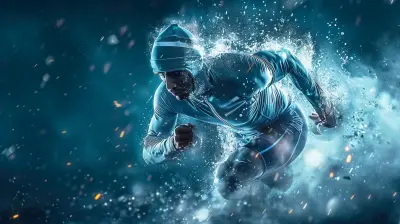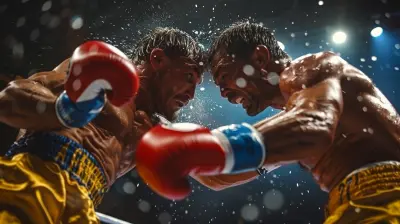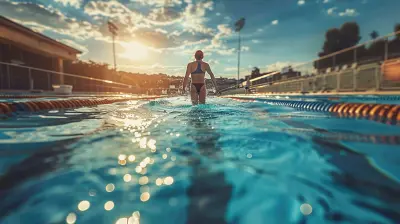The Importance of a Balanced Diet for Swimmers
19 June 2025
Swimming might look smooth and effortless from the sidelines, but anyone who’s spent hours in the pool knows it’s anything but easy. It’s a full-body workout that pushes your strength, endurance, and mental focus all at once. And here’s the kicker — training in water burns a ton of calories. That’s where your diet comes in.
A swimmer’s diet is like fuel for a high-performance engine. You can't expect top results if you're running on empty or loading up on junk. So, let’s dive into why a balanced diet isn’t just important for swimmers — it’s essential.
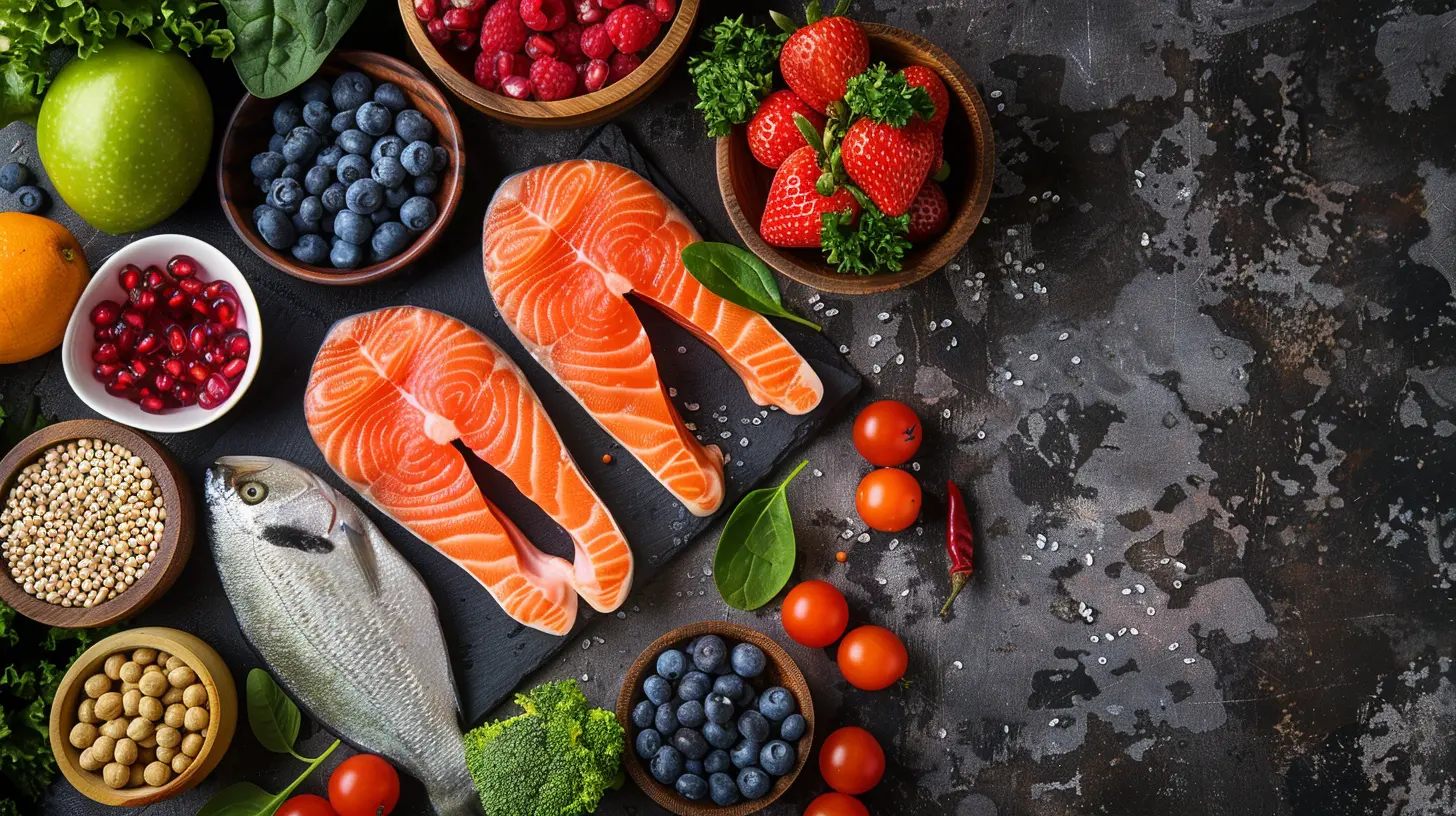
Why Nutrition Matters in Swimming
Think about it — swimming combines cardio and resistance training, and it can be incredibly taxing on the body. Whether you're doing sprints, long-distance laps, or intense drills, you're burning energy like wildfire. And since water removes heat from the body faster than air, your body works even harder to maintain performance.So, what keeps elite swimmers going strong? It's not just training. It's what they’re eating before, during, and after they hit the pool. Nutrition affects everything — energy levels, recovery time, muscle growth, and even how you sleep at night.
To put it simply: If training is the work, your diet is the paycheck. You gotta eat well to swim well. Period.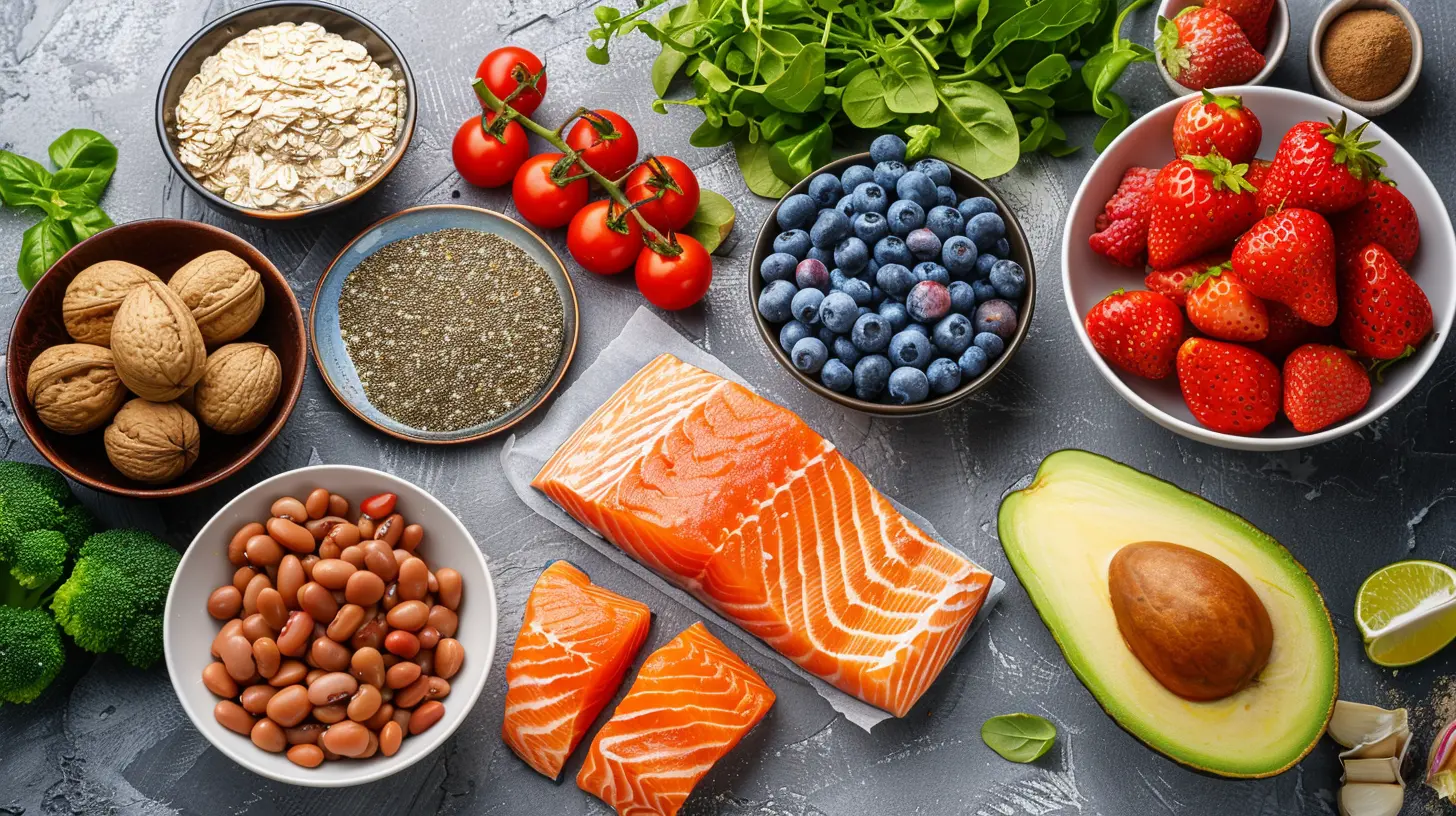
What Exactly Is a Balanced Diet?
Let’s bust a myth real quick — balanced doesn’t mean boring. It also doesn’t mean eating salads 24/7. A balanced diet includes the right mix of:- Carbohydrates
- Proteins
- Fats
- Vitamins and Minerals
- Water
Each one plays a specific role in keeping your body in top shape. Think of them as team players — they only win when they work together.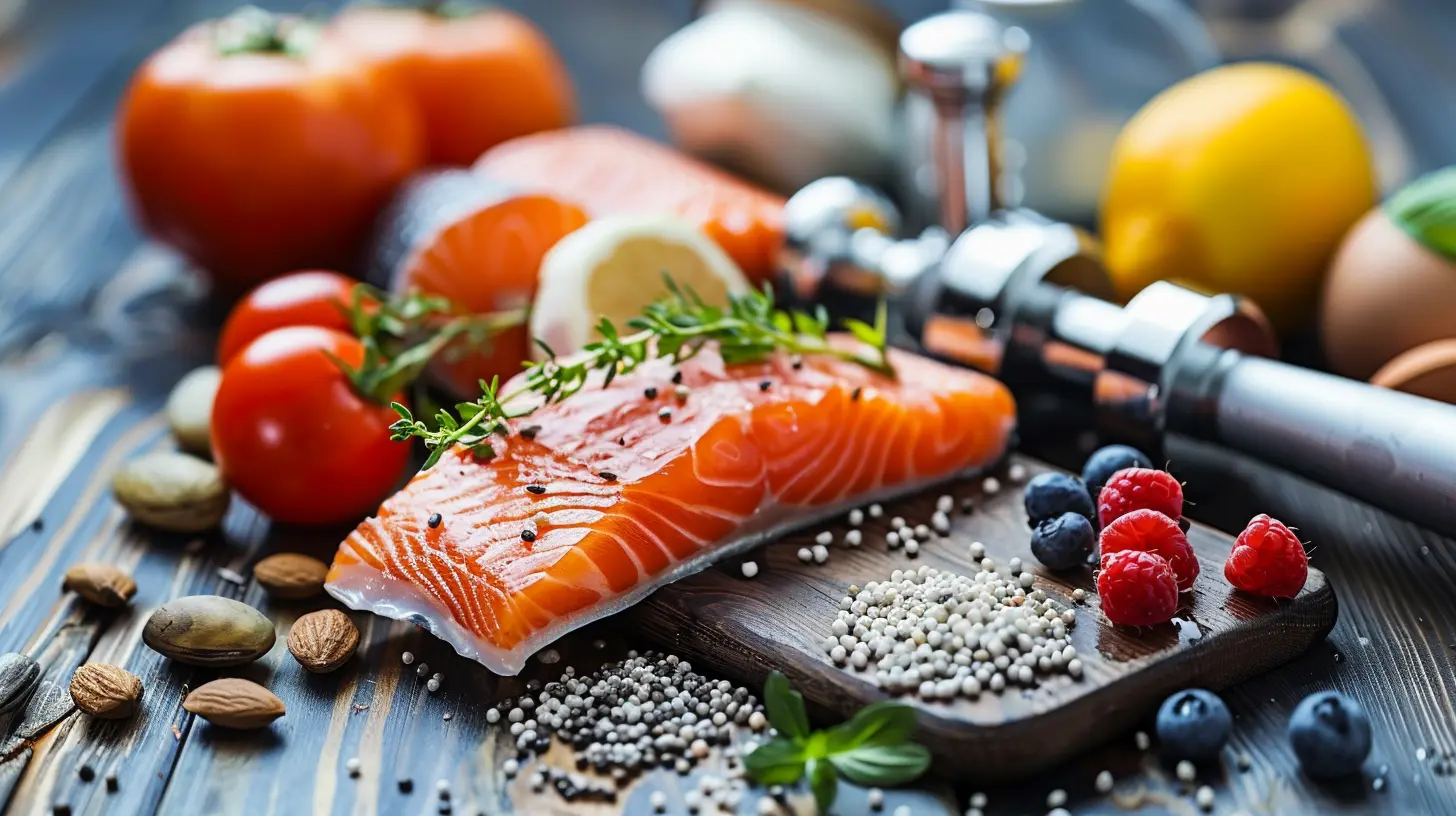
Carbs: The Main Fuel Tank
Love carbs? Good. Because if you’re swimming regularly, you absolutely need them.Carbohydrates are the primary source of energy for swimmers. When you swim, your muscles rely heavily on glycogen — which is basically stored energy from carbs.
Low on carbs? Welcome to fatigue city. You’ll feel sluggish, your performance will tank, and you'll probably get frustrated halfway through practice.
So, where should swimmers get their carbs?
- Whole grain bread and pasta
- Brown rice
- Fruits
- Potatoes
- Oats
- Quinoa
Quick tip: Try to make at least half of your daily carb intake from complex carbs (the slow-burning kind). They give you longer-lasting energy than sugary snacks.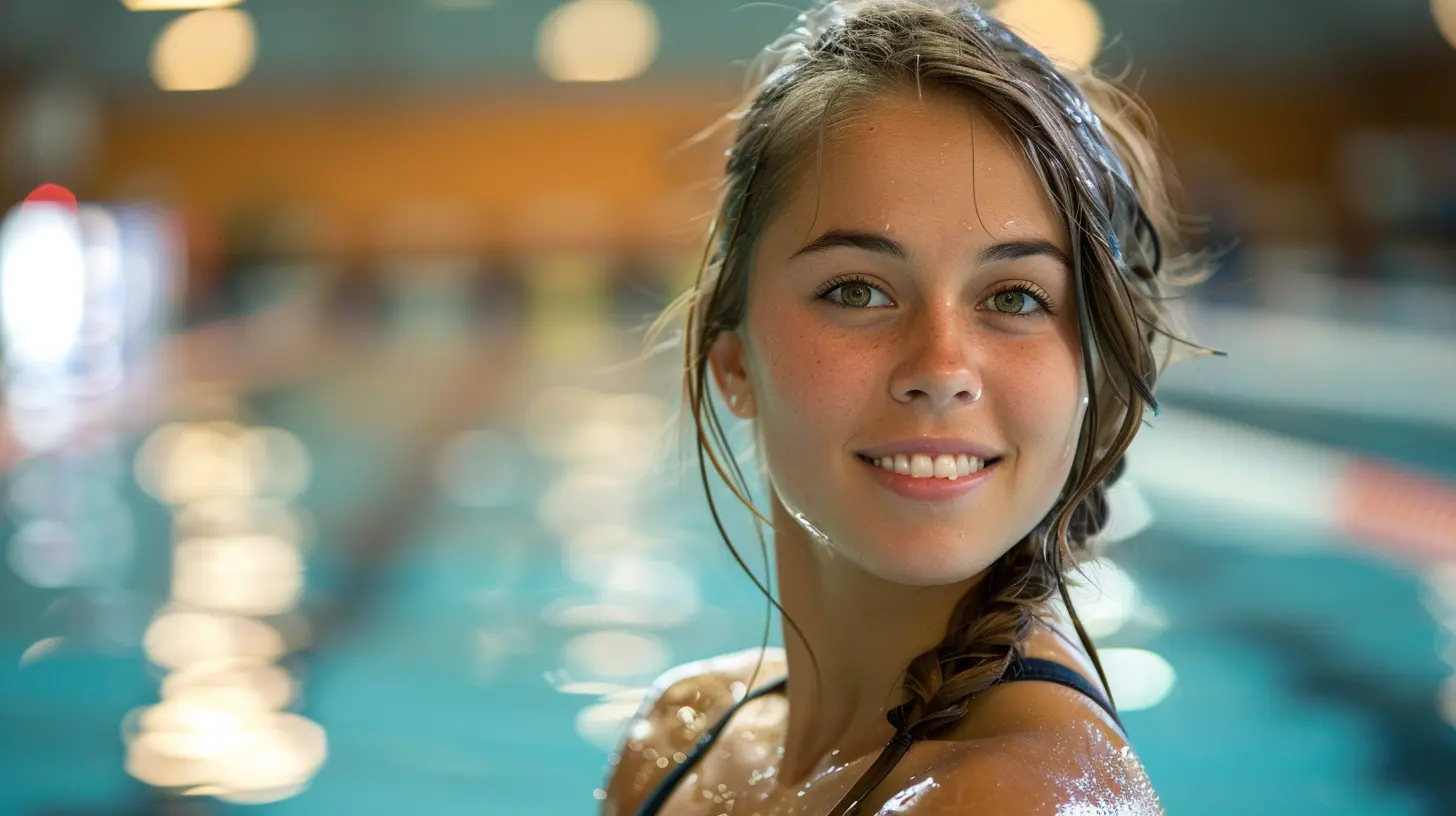
Protein: The Recovery Builder
After those grueling swim sessions, your muscles are crying out for help. That’s where protein steps in.Protein is all about recovery and rebuilding. It helps repair muscle tissue, supports immune function, and keeps you feeling full longer.
Good sources of protein include:
- Chicken
- Turkey
- Eggs
- Fish (especially salmon and tuna)
- Greek yogurt
- Tofu or lentils (for plant-based swimmers)
- Protein shakes (when you're in a pinch)
How much protein do you need? It depends on your training load, but a general range is 1.2 to 2.0 grams per kilogram of body weight per day for athletes. If you're swimming multiple hours a day, aim higher.
Fats: The Long-Distance Fuel
Yeah, fat gets a bad rap. But the truth is, healthy fats are critical for swimmers — especially for endurance and hormone regulation.If you’re training for long-distance events or doing back-to-back practices, fats provide that slow-burning fuel you need to keep going strong.
Opt for healthy fats like:
- Avocados
- Nuts and seeds
- Olive oil
- Nut butters
- Fatty fish (again, salmon is a star)
Avoid the greasy fast food stuff. That kind of fat will just weigh you down and mess with your digestion.
Vitamins, Minerals, and Micronutrients: The Invisible MVPs
You don’t need a chemistry degree to understand why vitamins and minerals matter. They:- Support energy production
- Help carry oxygen to your muscles
- Aid in muscle contraction
- Keep bones strong
- Boost immunity
Calcium, iron, magnesium, and potassium are the big names here for swimmers.
Get your fill from:
- Leafy greens
- Dairy or fortified plant alternatives
- Bananas
- Beans
- Nuts
- Berries
- Citrus fruits
If you eat a variety of whole foods, you should be covered. But if you’re vegan or vegetarian, talk to a sports dietitian to make sure you’re hitting your targets.
Hydration: The Secret Weapon
Here’s something weird — you can still get dehydrated in water. Crazy, right?Whether you're swimming in a pool or open water, your body loses fluids through sweat. And since you don’t feel as sweaty in water, it's easy to forget to hydrate.
Dehydration even by a little bit can mess up your focus, increase fatigue, and slow your reaction times. Not exactly what you want when you’re racing against the clock.
So drink up:
- Start your day with a big glass of water
- Sip during practice (even short sessions)
- Rehydrate with electrolytes if you're training hard or sweating a lot
Timing Your Meals: When to Eat Matters
Okay, you’re eating healthy — great! But are you eating at the right times?Let’s break it down:
Pre-Workout Meal (1.5 to 2 hrs before training)
- Light, carb-heavy, and low in fat/fiber- Examples: toast and banana, oatmeal with berries, rice and grilled chicken
Post-Workout Meal (within 30-60 mins)
- Focus on carbs and protein to kickstart recovery- Examples: protein smoothie with fruit, turkey sandwich, chocolate milk (yep, it's legit)
Daily Meals
- Don’t skip meals — especially breakfast!- Eat balanced portions throughout the day to keep energy levels steady
Think of your body like a smartphone. If you don’t charge it regularly, don’t be surprised when it shuts down mid-use.
Common Diet Mistakes Swimmers Make
Even serious swimmers sometimes mess up their nutrition. Let’s go over a few common slip-ups:1. Skipping Breakfast
Swimming often starts early. But skipping breakfast is like trying to swim laps with no gas in the tank.2. Overeating Junk After Practice
You’re ravenous after training — we get it. But reaching for a burger and fries every time? Not ideal. Plan ahead with a post-swim snack or meal that fuels recovery.3. Ignoring Hydration
Just because you're surrounded by water doesn't mean you're hydrated. Keep that bottle close and sip often.4. Cutting Carbs or Fats
Trendy diets can be tempting, but swimmers need both carbs and fats for energy. Don’t shortchange your performance because of a fad.Special Considerations for Competitive Swimmers
If you’re competing at the club, college, or even Olympic level, nutrition becomes even more precise.Here’s where you might need to:
- Count macros
- Time meals around multiple training sessions
- Use supplements (under guidance)
- Plan travel snacks for meets
- Tailor carb-loading strategies before big events
This is where working with a sports dietitian can really elevate your performance.
Mental Benefits of Eating Well
Let’s be real — swimming is mentally tough. Long hours staring at the black line, pushing through fatigue, trying to beat your own time. It takes grit.And guess what? Your diet affects your brain, too.
A balanced diet helps improve:
- Mental focus
- Mood
- Sleep quality
- Stress management
Eating clean can help you stay sharp and motivated — especially during those tough training blocks or before big meets.
Final Thoughts: Food Is Your Superpower
Look, no one’s perfect. You don’t need to eat grilled salmon and kale at every meal. But understanding how to fuel your body can be the difference between just showing up and truly performing.A balanced diet gives swimmers what they need to train harder, recover faster, and compete stronger. Plus, feeling good in your body isn’t just great for performance — it’s great for life.
So, next time you’re prepping for practice, don’t just think about your goggles and cap. Ask yourself — did I fuel my body right today?
Because in the end, swimming fast isn’t just about what happens in the pool — it starts at the plate.
all images in this post were generated using AI tools
Category:
SwimmingAuthor:

Easton Simmons
Discussion
rate this article
2 comments
Deborah Wilkerson
A balanced diet is crucial for swimmers, as it fuels their rigorous training and enhances recovery. Proper nutrition supports endurance and muscle repair, while also maintaining optimal hydration levels. This article effectively underscores the intricate relationship between dietary choices and athletic performance, highlighting how food can be a swimmer's best ally.
November 10, 2025 at 5:40 AM

Easton Simmons
Thank you for your insightful comment! I completely agree—nutrition is vital for swimmers to optimize performance and recovery.
Zarek McBride
Essential fuel for optimal swimming performance!
June 22, 2025 at 1:00 PM

Easton Simmons
Absolutely! A balanced diet ensures swimmers have the energy and nutrients needed for peak performance and recovery.
